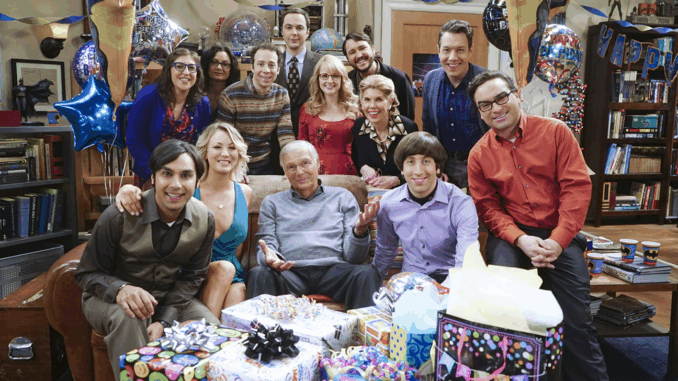
More than a decade after it first premiered, The Big Bang Theory remains one of the most beloved and influential sitcoms in television history. What began as a quirky comedy about socially awkward scientists and their next-door neighbor evolved into a cultural juggernaut that redefined what it meant to be a “mainstream nerd.” From comic book references to quantum mechanics jokes, The Big Bang Theory brought geek culture into living rooms around the world — and audiences couldn’t get enough.
When the show debuted in 2007, few could have predicted the impact it would have. Led by Johnny Galecki as Leonard Hofstadter and Jim Parsons as Sheldon Cooper, the original ensemble cast created an immediate dynamic that was both hilarious and deeply relatable. Kaley Cuoco’s portrayal of Penny, the aspiring actress from Omaha, gave the show its grounding — a bridge between the theoretical world of the physicists and the emotional realities of everyday life.
But it was Sheldon Cooper, with his strict routines, genius intellect, and total social cluelessness, who became the unexpected breakout star. Jim Parsons’ performance earned him four Emmy Awards and turned Sheldon into one of the most iconic TV characters of all time. His catchphrases — especially “Bazinga!” — became part of pop culture, and his character even inspired a spinoff, Young Sheldon, which continues to perform strongly years after the original series ended.
Over its 12-season run, The Big Bang Theory expanded its scope without losing its charm. New characters like Amy Farrah Fowler (Mayim Bialik) and Bernadette Rostenkowski (Melissa Rauch) brought fresh dynamics to the group, challenging traditional gender stereotypes in science while enriching the core cast’s chemistry. Relationships evolved, characters matured, and by the time the series finale aired in 2019, fans had watched these once-awkward outsiders grow into complex, successful, and emotionally grounded adults.

What made The Big Bang Theory unique wasn’t just its clever dialogue or sitcom structure. It was the way it celebrated intelligence, curiosity, and friendship. It made scientific discussion not only accessible but funny and engaging. It showed that being passionate about science fiction, comic books, or astrophysics didn’t have to be niche — it could be universal. And in doing so, it inspired a new generation of viewers to embrace their own quirks and interests unapologetically.
Even in syndication and streaming, The Big Bang Theory continues to draw massive audiences. Its rewatchability, character-driven humor, and emotional arcs give it a timeless appeal. Whether it’s Sheldon’s “roommate agreement,” Howard’s elaborate pickup lines, or Leonard’s earnest attempts to find love and respect, each episode delivers laughs that still resonate.
Now, years after its finale, the show’s legacy lives on not only through Young Sheldon, but also in the way it changed television. It proved that intellect and emotion, humor and heart, could coexist in prime time. And while we may not get another episode of The Big Bang Theory, the impact it left behind — both on television and in the real world — is still expanding, like the universe itself.